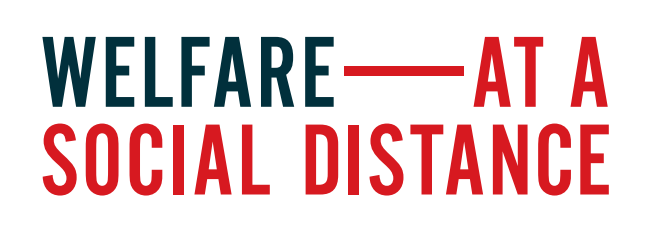 COVID-19 has exposed critical failures in global public policy preparedness and response. The UK’s response in particular is an archetype of how the pandemic has overwhelmed traditional public health-led approaches. Gemma Bowsher argues that pandemics are multivector threats meriting attention within a health intelligence framework.
COVID-19 has exposed critical failures in global public policy preparedness and response. The UK’s response in particular is an archetype of how the pandemic has overwhelmed traditional public health-led approaches. Gemma Bowsher argues that pandemics are multivector threats meriting attention within a health intelligence framework.
COVID-19 continues to reveal shortcomings in the day-to-day operational function of governments responding to crises of various kinds. The so-called ‘health security’ community has long argued for greater alignment of national and sub-national health functions with the apparatus of the security sector. Following 9/11, the US anthrax attacks soon after, and the quickly following SARS epidemic, global governance actors spoke readily of the need to consider health and security as flipsides of a coin. Over the ensuing period, however, expertise in the security sector regarding natural and intentional biological threats has declined, and so has political interest in making concrete steps towards building institutional frameworks in government.
Notably, Barack Obama, whilst still a junior senator, wrote in the New York Times of the need to consider health within the threat matrices of national security, and the evidence of renewed attention appeared during the 2014-16 Ebola epidemic, again during the Zika epidemic, and most recently of course, the COVID-19 pandemic. The UK government’s biological security strategy, published in 2018, explicitly notes the need to harness the capabilities of the intelligence sector to address the growth in biothreat concerns across the naturally occurring and deliberately engineered spectrum. The objectives of this strategy were ultimately side-lined due to Brexit, but nevertheless the findings have been thrown into sharp focus during the unfolding pandemic.
The history of forgotten proclamations in this arena is not confined to the UK – in 2004, the Canadian Government released its national security policy, including a chapter on ‘Public Health Emergencies’, which outlined a clear commitment to integrate public health within national security policy. The major product of this strategy was the establishment of the Global Public Health Intelligence Network, a surveillance system providing early warning indicators of biological threats. This system is an extremely powerful tool for the early identification of potential disease outbreaks of significance; however, its focus on outbreak detection alone reflects the general focus of governments such as the UK’s on monitoring relatively narrow epidemiological indicators, which are then directed into further epidemiological modelling. This approach is clearly a vital component of national outbreak responses, but the UK has demonstrated the hazards associated with over-reliance on modelling at the expense of a multi-vector framework integrating an all-source approach.
In a recent paper exploring the UK’s COVID-19 response, my colleagues and I propose a framework to approach health intelligence in a systematic manner, expanding the terms beyond public health domains. Using the framework of the intelligence cycle – direction, collection, analysis, production, dissemination – we offer a skeleton upon which to build a pandemic response protocol that incorporates systematic processes and informational sources from public health, clinical settings, political, commercial, economic and security sources to build a detailed intelligence product more reflective of the array dependencies arising from the health event of concern. This tool is applicable to naturally occurring outbreaks such as COVID-19, hostile events such as bioweapons attacks, or even events of broad health consequence for domestic populations, such as natural disasters. The newly-established Joint Biosecurity Centre is no doubt intended to fulfil some of these functions, in the same manner as the Joint Terrorism Analysis Centre, yet it remains to be seen beyond the pandemic how the functioning of this centre will effectively bridge the gap between health and security actors in the UK sphere.
Managing uncertainty amidst the constraints of an emerging pandemic is a serious challenge, and the need for proven institutional capacity has never been greater. Settings that have done well have employed a systematic approach from the start. South Korea and Singapore, for example, demonstrate the value of pre-established health emergencies planning with coordinated processes for managing information pathways before crisis strikes. These states have shown the importance of learning lessons from previous outbreaks – MERS and SARS – as well as maintaining high levels of situational awareness of unique geographic and geo-political concerns with potential to amplify harm, as well as producing opportunities to deliver early and effective responses. The importance of developing context-led systems cannot be overstated. As tempting as it is to use one country’s successes as a template for another’s future practice, parsing interventions with local requirements should instead be the critical focus. For example, the relative uptake of contact-tracing app technology in Australia or Singapore versus the UK, highlights the need for local intelligence to determine the direction of interventions from the earliest stage of action.
Of course, advocating for an intelligence-led approach to pandemics opens up pathways for criticism. There have been long and heated debates regarding the appropriateness of health actors working closely with security actors, or appearing aligned with security sector interests. These criticisms are rational and merit proper attention. However, as the health crisis of COVID-19 has been thrust to the centre of global attention, the failures of nation states and political structures to handle this unfamiliar threat makes stark the neglect of health concerns within broader governance approaches. It is certain that the control of public health will be drawn closer to the operations of central government and international governance actors in ways we could not have predicted at the outset of 2020. This approach is intended to support the work of the science and public health communities working to develop the critical knowledge necessary to develop treatments and vaccines during unfolding crises. Introducing systems of analysis such as intelligence methods offers one way to manage uncertainty in a robust, evidence-led manner that is subject to oversight. Without active thought and sustained attention, the UK and other nations risk repeating the failures of COVID-19 – the imperative to improve has never been greater.
_____________________
Note: the above draws on the author’s co-authored work in Health Security.
 Gemma Bowsher is a research associate at the King’s College London Conflict and Health Research Group.
Gemma Bowsher is a research associate at the King’s College London Conflict and Health Research Group.
Photo by Brian McGowan on Unsplash.







